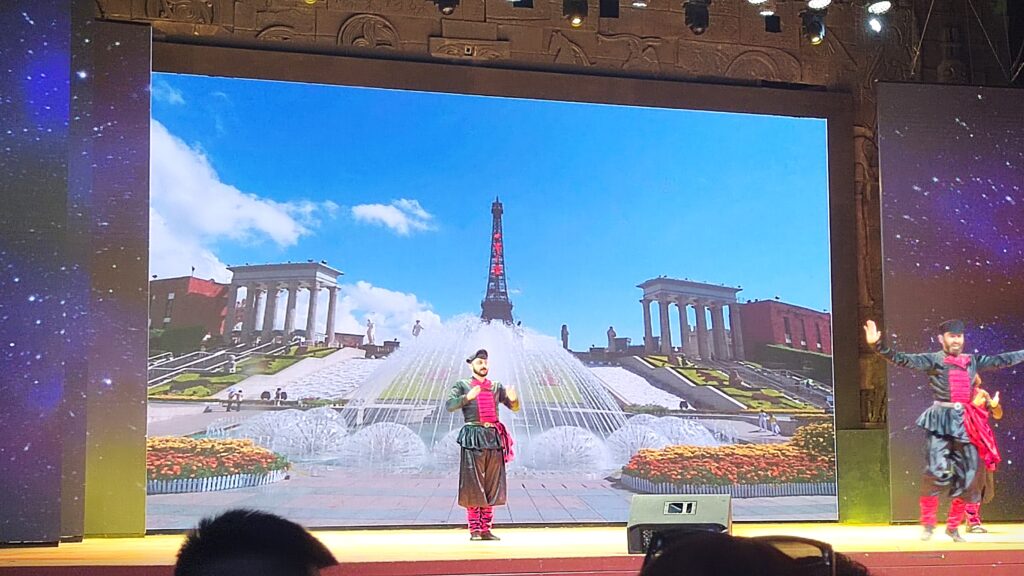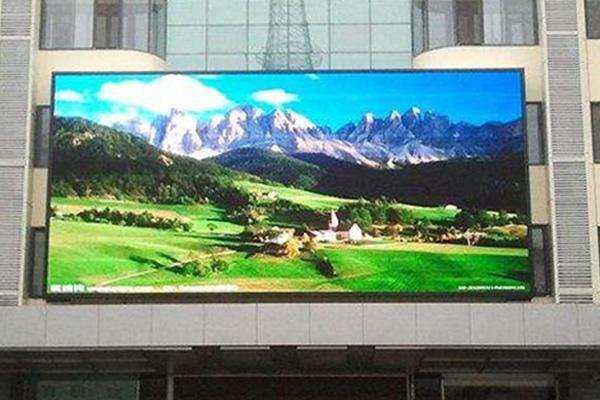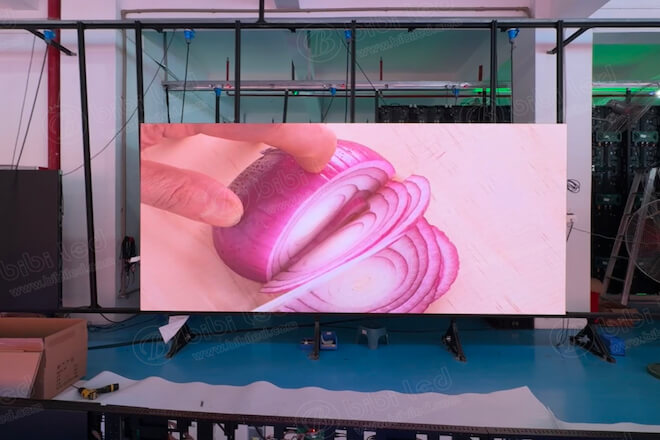Introduction

In today’s era of rapid development of multimedia technology, stage performances are no longer limited to traditional sound and light effects. As an important part of modern stage art, LED displays are changing our perception of stage performances with their unique charm.
This article will explore the application of LED displays in stage performances and how they affect and enhance the expressiveness of stage art and the audience’s viewing experience.
1. LED displays enhance the visual impact of performances
The LED display is like a super large, super-bright TV screen in stage performances, but it is much more powerful than the TV at home! Let’s see how it makes stage performances cooler and more attractive.
1). Dynamic background and real-time special effects make the stage alive
- Dynamic background:
The LED display can quickly change various background pictures like magic. For example, if the actor is singing a song about the ocean, the screen can become a blue ocean with rolling waves and jumping dolphins.
In this way, the audience is brought to a whole new world and feels the emotions of the song with the actor.
- Real-time special effects:
The LED display can also interact with the actor’s performance in real-time.
For example, if the actor makes a cool move, the picture on the screen can respond immediately, and some special effects will appear to match the move, making the whole performance look more shocking and interesting.
It’s like you are playing a game with your friends, and the characters in the game will follow your actions.
2). High brightness and high resolution, see more clearly
- High brightness:
Imagine that in the sunny outdoors or on a brightly lit stage, the LED display is like a small sun, and the light it emits is particularly bright.
In this way, even if you are sitting far away, you can clearly see the picture on the screen without feeling blurry or dim. It’s like sending the wonderful moments on the stage directly to your eyes, making you more enjoyable!
- High resolution:
High resolution means that the picture on the screen is very delicate, just like looking at a photo with a magnifying glass; even the smallest details can be seen clearly.
On stage, this means that you can see every expression on the actor’s face and every detail of the stage setting, just like you are standing on the stage in person.
2. LED screens enhance the artistic expression of performances

Imagine that LED screens are like a super large magic board that allows stage designers to create visual effects that will make people’s eyes shine. Below, we will use simple words to explain how LED screens do this and how they work on those big stages.
1). The magic of the LED display screen on the big stage
- CCTV Spring Festival Gala:
Every Spring Festival, we watch the CCTV Spring Festival Gala. Have you noticed the super large LED display screen behind the stage? It is like a magician, changing various beautiful pictures with different programs.
For example, when the singer sings, a dreamy starry sky or beautiful scenery will appear on the screen, making the song more moving.
- Other large-scale performances:
LED display screens are indispensable not only for the Spring Festival Gala but also for occasions such as music festivals, concerts, and large-scale evening parties. It can make the stage look cooler and bring shocking visual enjoyment to the audience.
Sometimes, the picture on the screen and the live performance are perfectly matched, as if telling a complete story, allowing the audience to immerse themselves in it.
2). Let visual creativity fly
- Change as you want:
LED screens are super flexible and can change screens as quickly as turning pages of a book. Designers can change different backgrounds, patterns, or videos at any time according to the needs of the performance, keeping the audience’s eyes busy and always fresh.
- Interaction is more interesting:
Sometimes, LED screens can also interact with the audience! For example, the audience can send messages to the big screen through their mobile phones, and the big screen will display them so that the audience will feel like they are participating in the performance, which is more interesting and exciting.
- Creativity has no limits:
Designers can use LED screens as a large canvas to draw, play videos, and even create 3D effects. They can use it to tell stories, or use it to create an atmosphere and make the stage look more colorful.
3. LED display screen improves the audience experience
LED display screens play an important role in improving the audience experience, mainly by providing a wider viewing angle and more delicate image quality, as well as flexible application in different types of performances, to enhance the audience’s emotional participation.
1). Enhance the emotional participation of the audience
- Emotional guidance:
The visual content on the LED screen is often closely related to the theme and emotion of the performance. By displaying specific images and videos, the LED screen can guide the audience’s emotional direction and enhance the audience’s emotional participation and involvement.
- Immersive experience:
LED screens enable the audience to be more immersed in the performance by providing high-quality images and a wide viewing angle. The audience seems to be in the performance scene and resonates emotionally with the performers.
- Interactive experience:
In some performances, LED screens can also interact with the audience. For example, through touchscreen technology or mobile phone apps, the audience can participate in the performance, interact with the performers, or influence the performance process.
This interactive experience not only enhances the audience’s sense of participation but also makes the performance more vivid and interesting.
2). Provide a wider viewing angle and more delicate image quality
Traditional projection or screens often have limitations in viewing angles, while LED displays can effectively avoid this problem, ensuring that the audience can clearly see the screen content from different angles.
- Delicate image quality:
LED displays with high resolution and high pixel density can present more delicate and clear image quality. This high-quality image not only enhances the audience’s visual enjoyment but also allows the details to be perfectly displayed, enhancing the audience’s immersion.
- Wide viewing angle:
LED display screens are usually designed with a wide viewing angle, which means that the audience can get a better viewing effect no matter where they sit.
For example, in a concert, the LED display can display high-definition performance images and close-up shots, making the audience feel as if they are in the center of the stage and in close contact with the performers.
3). Application in different types of performances
- Concerts:
In concerts, LED displays can be used as background screens to display visual content related to the theme of music, such as animations, videos, etc.
These visual elements are closely integrated with the rhythm of the music, bringing the audience a dual audio-visual enjoyment.
At the same time, the LED display can also display lyrics, band member introductions, and other information in real-time to help the audience better understand the content of the performance.
- Drama:
In drama performances, LED displays can simulate various scene changes, such as sunrise and sunset, rain and snow weather, etc., to create a more realistic drama atmosphere for the audience.
In addition, LED screens can also be used to display subtitles, character monologues and other content to help the audience better understand the plot and character emotions.
4. Technical challenges and innovations of stage LED display screens

When we talk about LED displays on stage, they are like big magic drawing boards, bringing a wonderful visual feast to the audience. But do you know? Behind these magic drawing boards, there are actually many technical secrets and challenges, and they are constantly changing new tricks!
1). Novel technological innovation
- The wonder of transparent screens:
Have you ever seen a display screen that can be “invisible”? Transparent screens are such a magical existence! They can be as transparent as glass but can display a variety of images. In this way, the background and the display screen on the stage can be perfectly combined to create unprecedented visual effects.
- The fun of interactive technology:
Now, the audience is no longer just watching the performance quietly. They can interact with the LED screen through their mobile phones or touch screens, such as sending bullet screens, participating in games, etc. This interaction makes the performance more interesting, and the audience can also become part of the performance.
- The shock of the 3D effect:
LED screens can not only display flat images but also use special technology to make the images “jump out” of the screen and look three-dimensional! This effect makes the audience feel as if they are in the scene and experience the ups and downs of the story with the actors.
2). Small technical challenges
- The art of brightness adjustment:
The light on the stage changes a lot; sometimes, it is dazzlingly bright, and sometimes, it is too dark to see clearly. The LED display screen should be able to automatically adjust the brightness according to the ambient light so that the audience can see clearly and comfortably without feeling dazzling.
- Big synchronization challenge:
Imagine if there are several large screens on the stage, but the content they display is not synchronized. Wouldn’t it be strange?
Therefore, engineers must ensure that all screens display the same content at the same time, just like everyone dancing together, and the pace must be exactly the same.
- The magic of color management:
The colors on the stage must be bright and accurate to make the performance more vivid. But different LED screens may have a little color difference, so engineers have to act like colorists and carefully adjust the color of each screen to make them look perfectly consistent.
Conclusion
The application of LED screens in stage performances has undoubtedly brought revolutionary changes to artistic creation. They not only enhance the visual impact and provide rich means of artistic expression, but also greatly enrich the audience’s sensory experience.
As technology continues to advance, we can foresee that LED displays will continue to play an increasingly important role in stage art, bringing more diverse and innovative possibilities to performing arts.
Finally, if you want to know more about LED displays, please get in touch with us.


